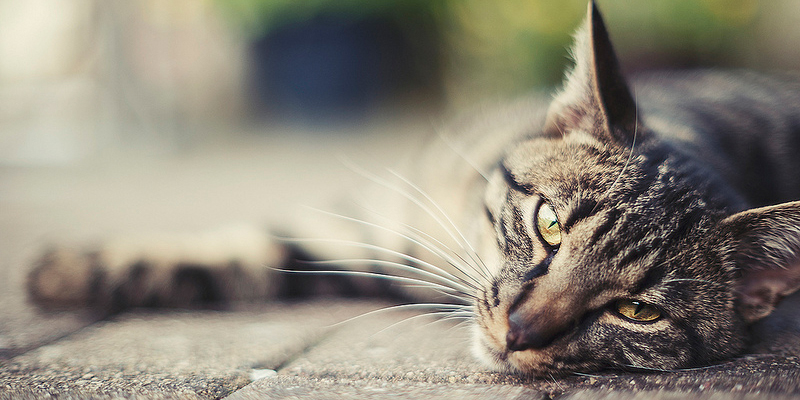Sales line (01507-611065) open : Monday - Friday, 9.30am - 5.15pm.
Better Sleep: 28 Easy Sleep Tips To Improve Your Slumber
There's nothing worse than spending a night in bed tossing and turning. And when you wake the next morning, you have to face a long day at work or school feeling tired, groggy and probably a little bit grumpy.
But don't worry – if you find it difficult to sleep at night, check out this comprehensive range of sleep tips for a better rest!
We've split the list into handy subsections to make it easier to read. The guide features handy tips on how to get to sleep including:
- Bedroom and sleep environment factors.
- How diet and nutrition affects sleep.
- The effects of technology.
- And how your lifestyle choices can contribute to better sleep.
So, without further ado, here's our comprehensive list of sleeping tips to help improve your slumber...
Bedroom Factors
The layout, décor and the way you use your bedroom can have an effect in how well you sleep in it.
1) Have A Comfortable Bed
You spend around a third of your life in bed. So why make it an uncomfortable place to be? Over time, your mattress will need replacing as it begins to sag and lose its firmness, while experts recommend that you replace your bed approximately every seven years. Your bed should promote good sleep by offering excellent support to your spine and by being comfortable and welcoming. Check out our bed buying guide and mattress buying guide for help choosing the ideal options for you.
2) Make Your Bedroom Suitable For Sleep
The bedroom is primarily to be used for sleep. So make sure that you keep yours clean, tidy, and stress free. A cluttered space can increase stress, making it difficult to fall asleep. Also try to maintain a cool, dark and quiet bedroom, as these provide the perfect surroundings for a peaceful night's rest.
3) Pet Free Zone
Many people like to share their bedroom with their furry friends, but this can be a recipe for a rough night. Like humans, animals move and make noises during sleep, which can disrupt your own slumber. Pet fur can also trigger allergies, which can also disturb your sleep. Unpopular though it may be, one of the best sleeping tips is to ban pets from the bedroom.

Cats: Cute, but can be disturbing to your sleep if they share your bedroom. Image used and adapted under Creative Commons License 4.0. Image credit: 55Laney69
4) Aromatherapy
Certain natural herbs and oils can help to promote restfulness and improve your sleep. Try burning some lavender or ylang-ylang essential oil in your bedroom, or even spritz some onto your pillowcase to get the calming benefits which will help your sleep.
Diet and nutrition
Have you ever realised the effects that your diet can have on your sleep? Read on for more information on how nutrition is related to rest.
5) Lay Off The Caffeine
We love a good cuppa in this country. But be careful of how much caffeine you drink close to bedtime, as it is a stimulant that can keep you awake at night if you have too much. It's also a diuretic, which can lead to frequent bathroom breaks and disturbed sleep patterns.
6) Don't Drink Too Little
If you're thirsty during the night, your body will struggle to rest, leading you to wake up. Having a glass of water on your bedside table can be beneficial, but even then you might struggle to nod off again. Try to drink enough during the evening before bed to avoid waking up thirsty.
7) Don't Drink Too Much
It's important that you drink enough fluids to ensure that you don't wake up thirsty during the night. But drinking too much can also be a recipe for disaster – causing your sleep to be disturbed by trips to the bathroom.
8) Eat Early
Eating a big evening meal too close to bedtime isn't a good idea, as the digestive process is one that can keep you awake. Instead, try to eat earlier to allow time for your meal to digest effectively before you try to sleep. If you feel peckish later on, stick to small, light and healthy snacks that won't cause your digestive system to go into overdrive.
9) Avoid Excessive Alcohol Intake
While you may find that alcohol helps you nod off quicker, it also acts as a stimulant that wakes you up in the night. It also makes you need to use the bathroom more often, which can have a further disruptive effect. Try to limit intake to one or two per night as a maximum, and where possible, stop drinking three hours before bed.

Alcohol: Can cause sleep disruption. Limit your intake, particularly close to bedtime. Image credit: picjumbo.com.
Technology
There's no doubt that technology has enriched our social lives and down time, but it can also keep you awake at night. Here's how...
10) Cut The TV
Relaxing by watching television in an evening is a great way to unwind. There's certainly nothing wrong with tuning in to your favourite shows after a long day, but try not to watch TV in bed. Some experts suggest that TV sets should be banned altogerther from the bedroom. This is because the blue light that they give off can reduce the production of melatonin, the chemical which promotes sleep. So stop watching TV an hour or so before bed, and instead relax with a book or some soft music.
11) Stop Surfing
For the same reason that turning off the TV early is encouraged, it's important that you don't lay in bed surfing the internet or playing games on your phone right before you go to sleep, as laptop, tablet and mobile screens are also sources of blue light. Again, keep technology to a minimum in your bedroom, and stop using your gadgets well before you sleep.
12) Keep Your Phone Away
If you sleep with your mobile or smart phone on your bedside table right next to you, how often do you reach out for it after you've turned the lights out? This can be a real distraction and can massively affect your sleep. Try leaving the phone in a different room, or at least further away than your arm's reach to avoid temptation.
13) Use A Dedicated Alarm Clock
If you're not one of those lucky people who can wake up on time every morning and leap out of bed, you'll probably need an alarm to help you up. But try and use a dedicated alarm clock, rather than using one built into your phone. Using your mobile's alarm feature again means that the device will be close to you, and you could be tempted to use it when you should be asleep. Ditch the mobile alarm and invest in an alarm clock to wake you.
Lifestyle
How well you sleep is affected by a wide range of your lifestyle choices, from the moment you wake up to the minute you decide to climb in between the sheets.
14) Exercise Regularly
Taking physical activity can be hugely beneficial in aiding sleep. Using up energy means your body becomes ready for rest, but be sure to finish exercise well before you try to sleep. Exercising too close to bedtime means the stress alerting chemical cortisol is active as you try to sleep, making it difficult to drift off. Instead, try to exercise earlier in the day, leaving a few hours afterwards before heading to bed.
15) Sleep When You're Tired
Even if you have a regular bedtime, it can sometimes be hard to drift off. If you are unable to sleep, don't get frustrated as this can only worsen the problem as you toss and turn. Instead, get up and relax yourself with some soothing music or by reading a book until you are tired enough to sleep.
16) Prepare Properly
You're sleep preparation shouldn't begin as you peel back the sheets each evening; you should leave time to unwind and relax well before you actually hit the hay. In today's fast paced society, many of us work long hours and leave little time for ourselves. But you should always make sure you dedicate a few hours each evening to recuperation; it greatly benefits you by putting you in the relaxed state that is best for sleep.
17) Don't Watch The Clock
When you're trying to nod off, having a luminous clock face flashing the time can be detrimental. Don't watch the clock as it can increase stress, making it much harder to nod off. Instead, turn the clock away from you and ignore it as you head off to sleep.
18) Establish A Sleep Routine
If you get up and go to bed at the same time each day, your body becomes accustomed to your regime, which can make it much easier to fall asleep each night. If you don't already, try to establish a routine which will help your body know when it is bedtime.
19) 'Going To Bed' Alarm
How often do you promise yourself an early night, only to end up being distracted? Before you know it, you're crawling into bed hours later than you planned. To avoid this, try setting a bedtime alarm which alerts you at the time you want to head off to sleep. And stick to it!
20) Nap At The Right Time
If you like a nap, the good news is that it's good for your health. But taking a nap too late can be detrimental to your evening sleep. So if you feel you could benefit from a quick snooze, try to take it before 5pm, as this will allow your body to still become ready for your main rest later on.
21) Sleep Diary
If you struggle to sleep, try keeping a sleep diary for a few weeks. Each morning, note down the time you went to sleep, how long it took to fall asleep, how many times you woke up during the night, and any other associated information, such as what you ate and drank before bedtime. This can help you to identify which factors make for the best sleep, and which are more likely to disrupt your slumber.
22) Stop Smoking
There are endless health associated reasons to stop smoking, and here's another; it can improve your sleep. Nicotine is a stimulant which can stop you falling asleep effectively. In fact, people who don't smoke are four times more likely than smokers to feel well rested after a night's sleep. To reap the health benefits and improve your sleep, kick the habit.
23) Clear Your Mind
Going to bed with your thoughts racing and your mind focused on your worries is never good. It'll only increase your stress and lead to disturbed sleep. Before bed, try taking a piece of blank paper, and noting down anything that's on your mind and how you will overcome it. This can be therapeutic and have a relaxing effect that helps your sleep.
24) Unwind With Relaxing Music
Listening to some soft music can really help your body to unwind. Anything too hardcore or heavy isn't recommended, but something soothing and relaxing is good. Laying with your headphones in and no other distractions is a useful way to promote good sleep.
25) Read A Book
Another great tip for better sleep is to read a book at bedtime. Even if it's just a few pages or a chapter, this can again help the body to relax and unwind, preparing it for sleep.
26) Deep Breathing
Before you hit the hay, try some deep breathing exercises. These can help to release tension and relax the body, making you more prepared for sleep. The '4-7-8' method is an easy way to practice deep breathing; simply inhale for the count of four, hold the breath for the count of seven, and exhale slowly for the count of eight.
27) Get Some Sunlight
Exposure to daylight means that your body's melatonin levels are regulated, so even if you work in an office or indoor environment, make it part of your daily routine to get outside at some stage. Even just a few minutes of sunlight can help with your body's sleep-wake cycle, meaning you'll sleep better later.

Sunlight: Exposing yourself to daylight every day can help regulate your sleep-wake cycle, improving your quality of sleep later. Image credit: picjumbo.com.
A Final Sleep Tip
When all else fails...
28) See A Doctor
If you feel like you've tried everything to no avail, don't be too embarrassed to see a doctor or medical professional. People do suffer from sleep disorders, and these can drastically affect your quality of sleep. If you feel there's no other option, seek medical help.
Ready to make a change?
If you struggle to sleep at night, there's no denying that it's a frustrating experience. But by making some simple changes to your routine, you can dramatically improve your nightly rest. Try these tips for better sleep, and let us know how you get on!
Do you have any top tips to get to sleep that we've missed? Share them with us in the comments below.



















